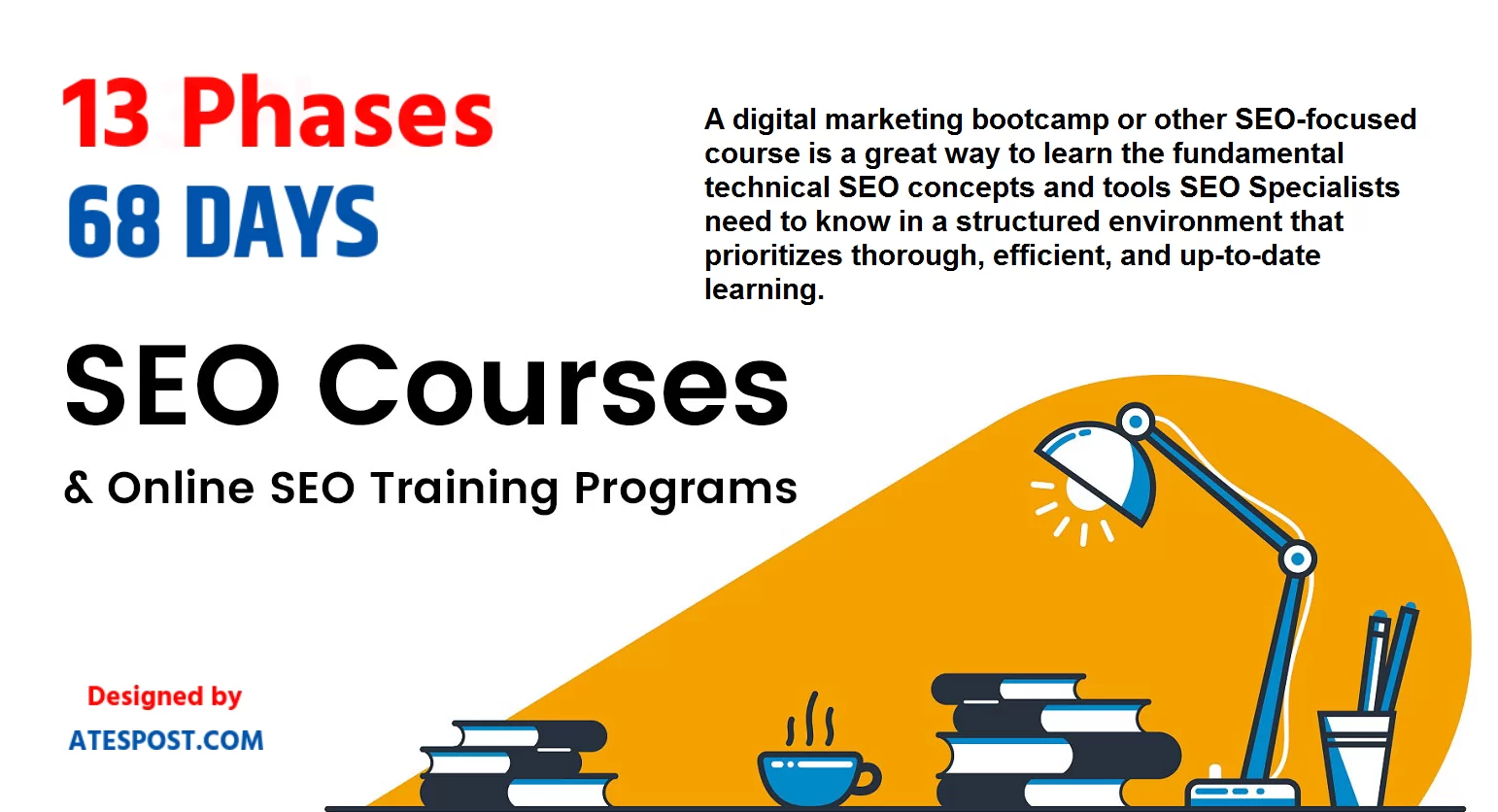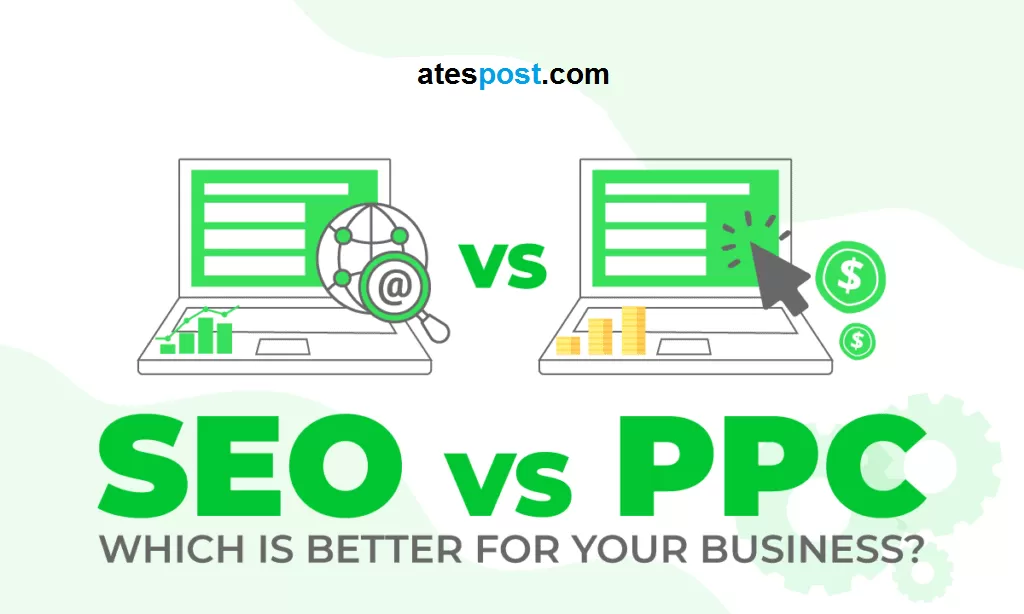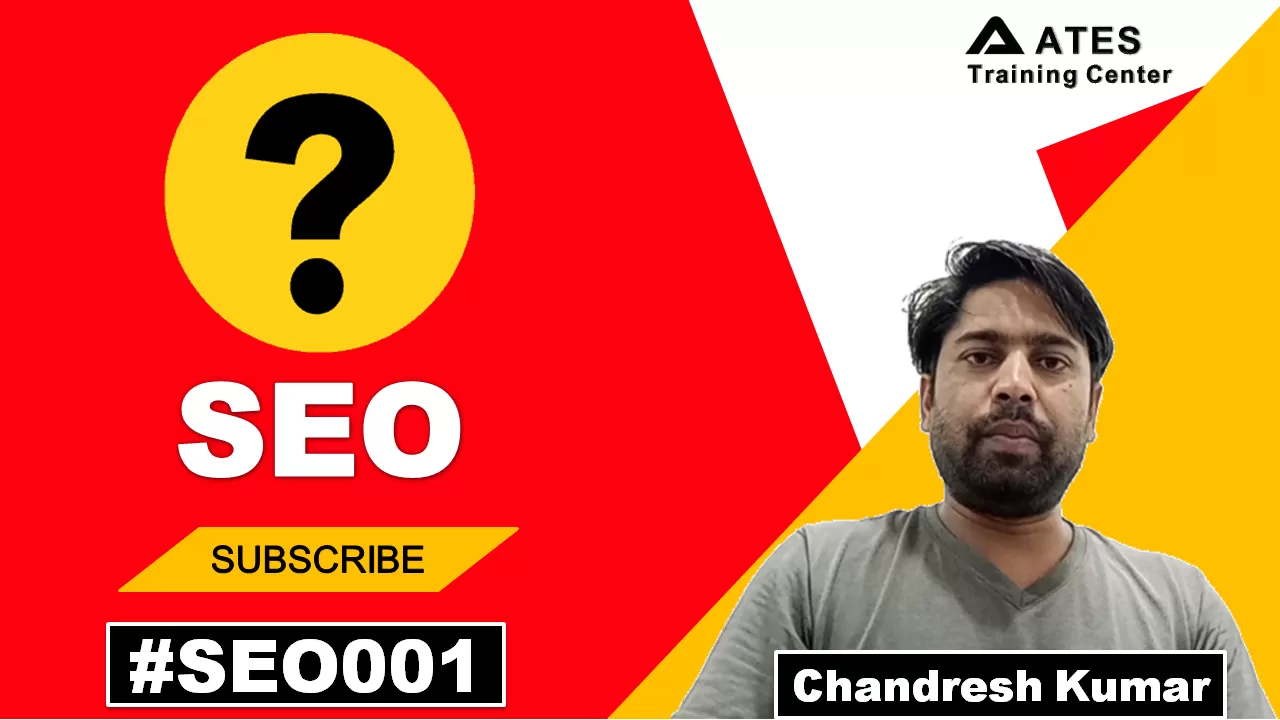All About SEO Training Complete it in 67 Days
Hello my dears,
Phase 1, Introduction to SEO (Online SEO Training)
Online SEO Training:
Day 1, What is SEO?
SEO stands for Search Engine Optimization. It’s the process of optimizing your website and content to appear higher in search engine results pages (SERPs) for relevant keywords and phrases. Essentially, it’s about making your website more attractive and relevant to both users and search engines.
Here’s a breakdown of the key aspects of SEO:
On-page SEO:
This focuses on optimizing individual elements of your website, such as:
- Content:Creating high-quality, informative, and engaging content that targets relevant keywords.
- Title tags and meta descriptions:Writing clear and concise descriptions of your pages that entice users to click.
- Headings and subheadings:Structuring your content with clear headings for better readability and user experience.
- Internal linking:Linking between relevant pages on your website to help users navigate and search engines understand your site structure.
- Images and videos:Using optimized images with relevant alt text and optimizing video titles and descriptions.
Off-page SEO:
This focuses on factors outside your website that influence your ranking, such as:
- Backlinks:Building links from other high-quality websites to your own. This signals to search engines that your website is trusted and authoritative.
- Brand mentions and social media engagement:Building a strong online presence and generating positive mentions of your brand can improve your search ranking.
- Technical SEO:Ensuring your website is technically sound and mobile-friendly.
Overall, SEO is a complex and ever-evolving field.
The best practices and strategies are constantly changing as search engine algorithms become more sophisticated. However, by focusing on creating high-quality content, providing a great user experience, and building a strong online presence, you can significantly improve your website’s visibility and organic traffic.
Day 2, Importance of SEO in Digital Marketing
The importance of SEO in digital marketing can’t be overstated. It acts as the foundation for driving organic traffic, building brand awareness, and establishing authority in your niche. Here’s a breakdown of its key benefits:
Increased Organic Traffic:
- Higher ranking in search results:The higher your website ranks, the more likely users will discover and click on it. SEO helps you achieve this by understanding and following search engine algorithms.
- Cost-effective compared to paid advertising:While paid ads bring immediate results, they require ongoing investment. SEO, once optimized, delivers organic traffic consistently without recurring costs.
- Targeted audience:By focusing on relevant keywords, you attract users actively searching for what you offer, leading to higher conversion rates.
Enhanced Brand Awareness & Credibility:
- Visibility and authority:Ranking high on SERPs shows users you’re a relevant and trustworthy source, boosting brand recognition and reputation.
- Organic growth:Building organic traffic through SEO feels more natural and authentic compared to paid channels, increasing user trust.
- Improved user experience:A well-optimized website with relevant content improves user experience, encouraging further engagement and brand loyalty.
Competitive Advantage:
- Outrank competitors:Effective SEO helps you surpass competitors on SERPs, attracting their potential customers and expanding your market share.
- Long-term benefits:Unlike paid ads, SEO’s benefits compound over time as your website gains authority and ranking stability.
- Data-driven insights:SEO analytics provide valuable data on user behavior and keyword performance, helping you refine your strategy for better results.
Additional benefits:
- Improved website usability:Optimizing for search engines often involves improving website structure and navigation, benefiting both users and search engines.
- Better targeting:By understanding user intent behind keywords, you can tailor your content and offerings to specific audience needs.
- Scalability:SEO strategies can be scaled up or down as your business grows, adapting to your evolving needs.
Day 3, Evolution of Search Engines
The way we navigate the information ocean of the internet has undergone a remarkable transformation since its early days. At the helm of this voyage of discovery stand search engines, evolving from humble beginnings to sophisticated tools we rely on daily. Let’s take a dive into the fascinating history and ongoing evolution of these digital guides:
Early Days: Chaos & Catalogues (1990s)
- Humble Beginnings:Pioneers like Archie and WAIS indexed websites manually, a time-consuming and limited approach.
- Rise of the Directories:Yahoo! and Magellan emerged, organizing websites into categories like a library card catalog.
- Keyword Revolution:AltaVista and Lycos introduced keyword search, allowing users to hunt for specific information.
The Google Age: Algorithms & Relevance (2000s)
- The PageRank Algorithm:Google revolutionized the game with its innovative link-based ranking system, prioritizing relevant and authoritative websites.
- Focus on User Experience:Features like Google Suggest and Instant Search streamlined the user experience, anticipating queries and delivering results faster.
- Personalization Takes Hold:Search engines started considering user history and location to offer customized results.
AI & Beyond: Understanding Intent & Context (2010s & Present)
- Semantic Search:Engines like Google now understand the meaning and intent behind queries, going beyond literal keyword matching.
- Voice Search & Conversational Interfaces:Siri, Alexa, and Google Assistant represent a shift towards natural language interaction with search engines.
- Knowledge Graphs & Rich Results:Search engines integrate structured data and factual knowledge to provide richer, more informative results.
Looking Ahead: Personalized Journeys & Ethical Considerations
- Hyper-Personalization:Search engines might tailor results to individual preferences and biases, raising ethical concerns about filter bubbles and information access.
- Focus on User Privacy:Balancing personalization with user privacy will be crucial as search engines access and process ever-increasing amounts of personal data.
- Integration with Emerging Technologies:Search engines might seamlessly integrate with augmented reality and other technologies, making information retrieval even more intuitive and immersive.
The evolution of search engines is a continuous process driven by technological advancements and changing user needs. As we step into the future, these digital guides stand to become even more personalized, sophisticated, and integrated into our daily lives. However, ethical considerations and ensuring equal access to information will remain crucial challenges to navigate on this exciting journey.
Day 4, Understanding Search Engine Algorithms
Understanding search engine algorithms, particularly how Google’s works, can feel like trying to decipher an ancient alien language. While the exact specifics are closely guarded secrets, here’s what we do know:
Core Principles:
- Relevance:Finding the most relevant results for a specific search query is paramount. This involves understanding the nuances of language, user intent, and the context of the search.
- Quality:Prioritizing high-quality content from trustworthy sources. This can be determined by factors like website authority, expertise, and user engagement.
- User experience:Delivering a smooth and efficient search experience with fast loading times, mobile-friendliness, and clear results display.
Key Components:
- Crawling and Indexing:Search engines use “crawlers” to discover and index web pages. This involves following links and storing information about each page’s content.
- Ranking Algorithms:Complex algorithms analyze indexed pages, considering hundreds of factors, to determine their ranking for specific queries.
- Updates and Refinements:Search engine algorithms are constantly evolving to adapt to changing user behavior, new technologies, and spam prevention.
Understanding vs. Manipulating:
While understanding some principles can help you create content that resonates with audiences and search engines, focusing solely on manipulating algorithms is ineffective and can even harm your website’s ranking.
Here’s what to focus on instead:
- Create high-quality, informative content:Write for your users first, providing valuable information that answers their questions and solves their problems.
- Optimize for user experience:Make your website easy to navigate, mobile-friendly, and visually appealing.
- Build backlinks naturally:Earn links from other high-quality websites through relevant collaborations and content creation.
- Stay updated on best practices:Keep yourself informed about evolving search engine guidelines and best practices.
Remember:
- Focus on quality and user value.
- Don’t try to “game” the system.
- Stay informed and adapt.
By following these principles, you can create a website that ranks well organically and provides a valuable experience for your users.
Day 5, Basic SEO Terminology and Concepts
Navigating the world of SEO can feel overwhelming at first, but understanding some key terms and concepts sets you on the right path. Here’s a breakdown of essential elements:
1. Keywords: These are the terms users type into search engines. Identifying relevant keywords and incorporating them naturally into your content is crucial for search engines to understand and rank your website.
2. Search Engine Results Page (SERP): This is the page you see after entering a search query, displaying a list of websites ranked for that term. Aiming for higher positions on SERPs increases your website’s visibility.
3. Ranking Factors: These are the various signals search engines use to judge a website’s relevance and trustworthiness, ultimately affecting its ranking. They include factors like content quality, backlinks, website speed, and user experience.
4. On-page SEO: This refers to optimization techniques applied directly to your website content and structure. Examples include using relevant keywords in titles, headings, and meta descriptions, optimizing images with alt text, and ensuring internal linking between related pages.
5. Off-page SEO: This focuses on factors external to your website, such as building backlinks from other high-quality websites. Backlinks act as votes of trust, indicating your website’s authority and relevance.
6. Technical SEO: This ensures your website is technically sound and crawlable by search engines. This includes aspects like mobile-friendliness, fast loading speeds, and structured data implementation.
7. Crawling and Indexing: Search engines use bots called “crawlers” to discover and index your website’s content. Indexing makes your pages accessible to search queries.
8. User Experience (UX): A well-designed website with clear navigation and engaging content improves user experience. Search engines reward websites with positive UX by potentially boosting their ranking.
9. Content Marketing: Creating valuable and informative content tailored to your target audience attracts users and establishes your website as an authority. Good content naturally attracts backlinks and improves SEO.
10. Analytics: Tools like Google Search Console and Google Analytics provide valuable insights into your website’s traffic, ranking performance, and user behavior. Tracking and analyzing these metrics is crucial for understanding your SEO effectiveness and making informed adjustments.
Phose 2, Keyword Research (Online SEO Training)
Phase 3, On-Page SEO (SEO Training Online)
Phase 4, Technical SEO (SEO Online Training)
Phase 5, Off-Page SEO (Online SEO Training Course)
Phase 6, Content Marketing and SEO (SEO Training)
Phase 7, SEO Analytics and Reporting (SEO Training)
Phase 8, Local SEO (SEO Training course)
Phase 9, E-commerce SEO (SEO Training)
Phase 10, Advanced SEO Strategies (Online SEO Training)
Phase 11, SEO Tools and Resources (Full SEO Training Free)
Phase 12, Developing an SEO Strategy (Free SEO Training)
Phase 13, SEO QNA (SEO Related)
SEO Services
Very Affordable SEO Services.
- OnPages Optimization
- OffPage Optimization
- Whitehat SEO Techniques
- 1st page in the Google
Web Hosting
Best Low Price Web Hosting.
- UnlimitedStorage
- UnlimitedBandwidth
- UnlimitedEmail Accounts
- 24/7Email Support
Create Website
Hire to Create a Website Now.
- 1 Domain name free
- 1 year hosting free
- Website development free
- Web design free
FAQ (Frequently Asked Questions)
Is this free SEO Training?
Yes, If you are getting training from ATESPOST.COM, then thi free seo training.



